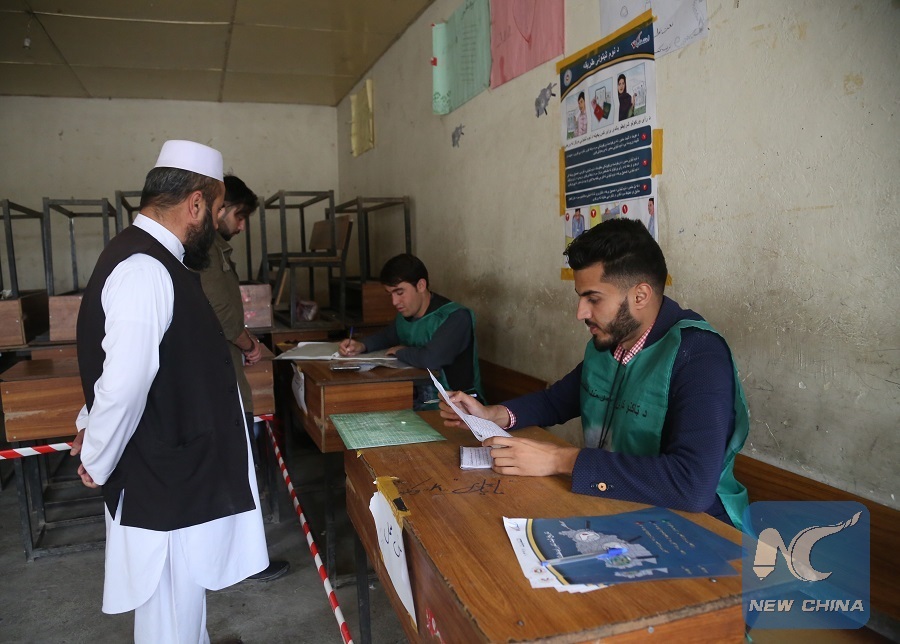
An Afghan electioncommission worker checks the identity of a man at a voter registration center in Kabul, capital of Afghanistan, May 12, 2018. (Xinhua/Rahmat Alizadah)
KABUL, Oct. 12 (Xinhua) -- As Oct. 20, the day set for parliamentary polls in Afghanistan, is nearing, the candidates for Wolesi Jirga or Lower House of Afghan parliament have intensified their campaigns by holding public meetings, hanging up posters, banners and visiting houses to win voters' support.
In Kabul, the capital of Afghanistan, the eye-catching pictures of parliamentary candidates on billboards, building walls, pylons and streets demonstrate the aspirants' resolve to defy the threats posed by anti-government militants in the polling process.
The anti-government armed insurgent groups, especially Taliban and the rival Islamic State (IS), have dismissed the elections as a U.S. trick to deceive the Afghans and vowed to disrupt the voting process in Afghanistan.
Taliban militants in the past elections had also targeted both the candidates and the voters. In the 2014 presidential elections, the militant group, besides opposing the election process, had also cut off the fingers of nearly a dozen people whose used their franchise in the polling.
In Kabul alone, 753 candidates including 108 women are contesting for 33 seats in the 249-seat Lower House of parliament amid security threats.
Across the country, there are about 2,500 candidates.
"Let's go ahead for better future," is the slogan of a female candidate Maryam Sama inscribed in her poster.
A male candidate Najib Paikan in his poster said, "Let' join hands to alleviate poverty, promote education, fight against corruption and ensure justice" in the country.
Nearly 9 million registered voters, including 3 million women, out of some 12 million eligible Afghans will cast their ballots during the upcoming polls.

